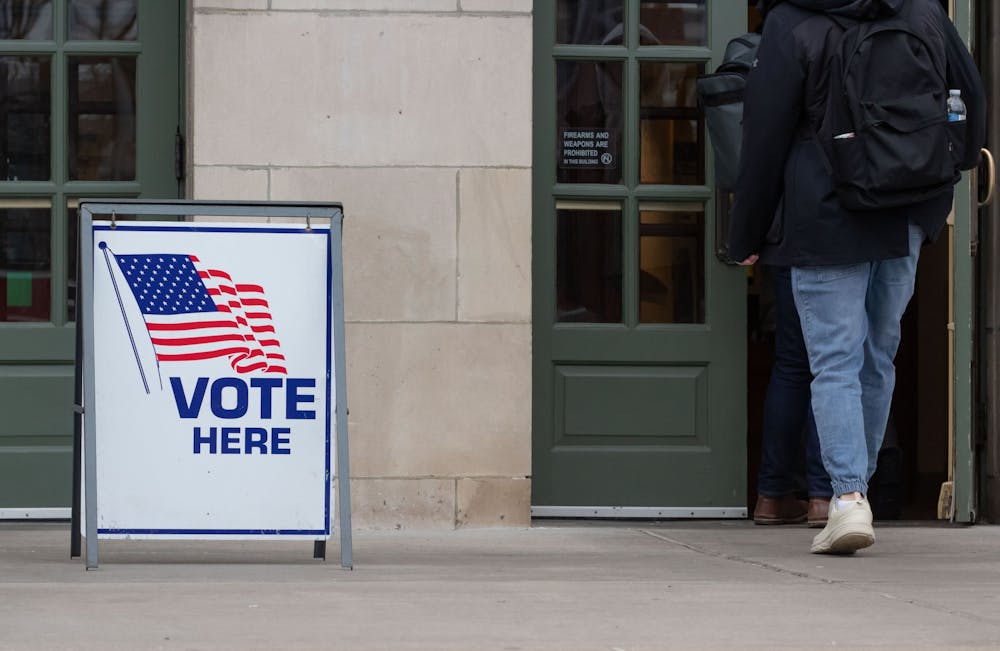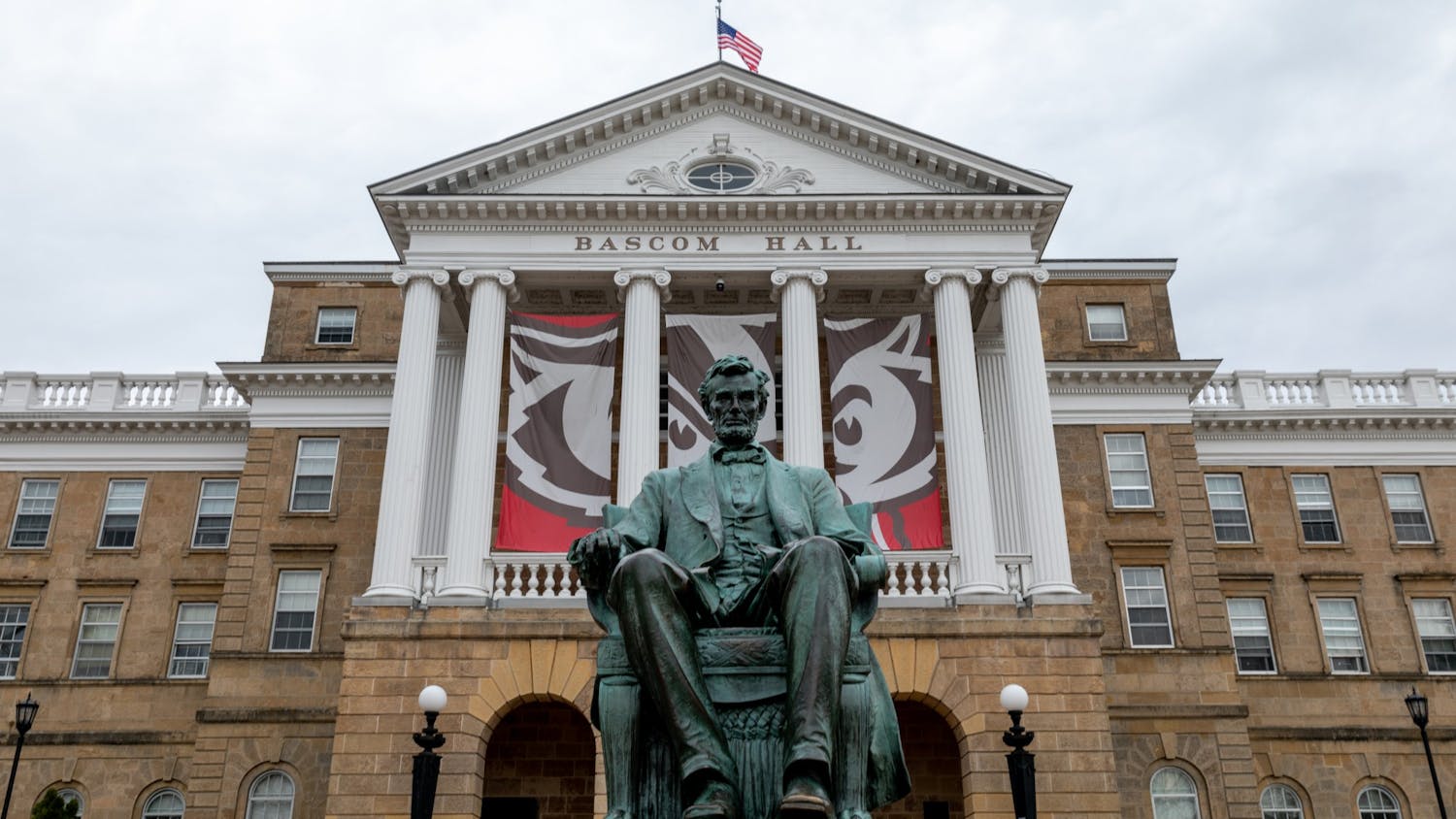For the past few months, University of Wisconsin-Madison students and Madison locals have patted themselves on the back for their civic engagement. They have stood on the streets with clipboards, canvassed door-to-door and enthusiastically directed new voters to registration tables and polling places.
This effort to get citizens to the polls is important. But on its own, it feels a little insincere.
If you were to ask any of these volunteers why they’re sacrificing their time, you’d be hit with a wave of platitudes about the importance of civic engagement. You’d hear a string of truisms about exercising our rights as citizens.
Up close, though, every volunteer has their own reasons for getting involved. Each will inevitably be more interested in engaging with one half of the political spectrum. They’ll be much more eager to see people exercise their right to vote for a certain candidate.
Granted, in an election that has become as hostile and as inescapable as this one, it’s impossible not to have an opinion. It would take a saint not to have personal, partisan motivations for getting involved. But most of the volunteers I spoke to didn’t seem to care what I knew about politics or civics at all provided I cast my ballot early — and cast it the right way.
All of the efforts stop as soon as the polls close. For the rest of the year, you’re all but guaranteed to walk on campus without anyone imploring you to be politically informed or to pursue a civic education.
The results of this neglect are clear. A recent survey by the American Council of Trustees and Alumni shows an alarmingly low level of civics literacy among college students. Only 32% of students understand the impeachment process, despite living through two recent trials. 27% could identify Vice President Kamala Harris as the president of the U.S. Senate.
This has to change. The values that election volunteers purport to hold don’t materialize in the two weeks before an election. When the public is inundated with partisan messaging, they’re practically predisposed to tune out the noise.
Instead, emphasizing civic engagement and education should be a year-round pursuit.
This effort is perhaps most easily carried out in a university setting. Universities can offer or even require civics courses. Students can seek those courses out. Schools can host panels and promote literature on the American political process. They can even sponsor outreach projects to educate younger generations, emulating programs like the University of Chicago’s Civic Knowledge Project.
UW-Madison has already taken admiral steps in the right direction. In September, students instituted a new chapter of BridgeUSA with the goal of fostering dialogue across the political spectrum. In October, the Morgridge Center for Public Service hosted a panel on the role of higher education in shaping civic engagement and democracy. Recently, the university sent out a Student Campus Climate Survey in order to learn more about the political environment on campus.
Of course, all of these initiatives popped up in the flurry of election season. Regardless, they’re a promising start. They have given us a unique chance to keep momentum after all the ballots are cast.
Think ahead. Four years from now, we will feel much more comfortable pushing people to the polls if we spend this time building a civically informed public.
Lauren Stoneman is a senior studying history, philosophy and political science. Do you agree that we need to prioritize civic education year-round? Send all comments to opinion@dailycardinal.com.
Lauren Stoneman is an opinions editor for The Daily Cardinal.






